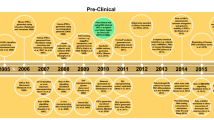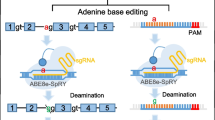Abstract
Approximately 1 in 500 newborns are born with chromosomal abnormalities that include trisomies, translocations, large deletions, and duplications. There is currently no therapeutic approach for correcting such chromosomal aberrations in vivo or in vitro. When we attempted to produce induced pluripotent stem cell (iPSC) models from patient-derived fibroblasts that contained ring chromosomes, we found that the ring chromosomes were eliminated and replaced by duplicated normal copies of chromosomes through a mechanism of uniparental isodisomy (Bershteyn et al. 2014, Nature 507:99). The discovery of this previously unforeseen system for aberrant chromosome correction during reprogramming enables us for the first time to model and understand this process of cell-autonomous correction of ring chromosomes during human patient somatic cell reprograming to iPSCs. This knowledge could lead to a potential therapeutic strategy to correct common large-scale chromosomal aberrations, termed “chromosome therapy”.


Similar content being viewed by others
Abbreviations
- (iPSCs):
-
Induced pluripotent stem cells
- (UPD):
-
Compensatory uniparental disomy
- (MDS):
-
Miller Dieker Syndrome
- (ZFNs):
-
Engineered zinc finger nucleases
- (TALENs):
-
Transcription activator-like effector nucleases
- (CRIPSR):
-
Clustered regularly interspaced short palindromic repeats
References
Amano T, Jeffries E, Amano M et al (2015) Correction of Down syndrome and Edwards syndrome aneuploidies in human cell cultures. DNA Res 22:331–342. doi:10.1093/dnares/dsv016
Bershteyn M, Hayashi Y, Desachy G et al (2014) Cell-autonomous correction of ring chromosomes in human induced pluripotent stem cells. Nature 507:99–103. doi:10.1038/nature12923
Boward B, Wu T, Dalton S (2016) Concise review: control of cell fate through cell cycle and pluripotency networks. Stem Cells 34:1427–1436. doi:10.1002/stem.2345
Brennand KJ, Marchetto MC, Benvenisty N et al (2015) Creating patient-specific neural cells for the in vitro study of brain disorders. Stem Cell Reports 5:933–945. doi:10.1016/j.stemcr.2015.10.011
Cartwright P, McLean C, Sheppard A et al (2005) LIF/STAT3 controls ES cell self-renewal and pluripotency by a Myc-dependent mechanism. Development 132:885–896. doi:10.1242/dev.01670
Damelin M, Sun YE, Sodja VB, Bestor TH (2005) Decatenation checkpoint deficiency in stem and progenitor cells. Cancer Cell 8:479–484. doi:10.1016/j.ccr.2005.11.004
Dobyns WB, Stratton RF, Parke JT et al (1983) Miller-Dieker syndrome: lissencephaly and monosomy 17p. J Pediatr 102:552–558
Edel MJ, Menchon C, Menendez S et al (2010) Rem2 GTPase maintains survival of human embryonic stem cells as well as enhancing reprogramming by regulating p53 and cyclin D1. Genes Dev 24:561–573. doi:10.1101/gad.1876710
Gardner RJM, Sutherland GR (2003) Chromosome abnormalities and genetic counseling. Oxford University Press, Oxford
Gisselsson D (2011) Ring chromosomes: vicious circles at the end and beginning of life. Atlas of Genetics and Cytogenetics in Oncology and Haematology. doi:10.4267/2042/37826
Hockemeyer D, Jaenisch R (2010) Gene targeting in human pluripotent cells. Cold Spring Harb Symp Quant Biol 75:201–209. doi:10.1101/sqb.2010.75.021
Hockemeyer D, Soldner F, Beard C et al (2009) Efficient targeting of expressed and silent genes in human ESCs and iPSCs using zinc-finger nucleases. Nat Biotechnol 27:851–857. doi:10.1038/nbt.1562
Hockemeyer D, Wang H, Kiani S et al (2011) Genetic engineering of human pluripotent cells using TALE nucleases. Nat Biotechnol 29:731–734. doi:10.1038/nbt.1927
Hotta A, Yamanaka S (2015) From genomics to gene therapy: induced pluripotent stem cells meet genome editing. Annu Rev Genet 49:47–70. doi:10.1146/annurev-genet-112414-054926
Hussein SMI, Elbaz J, Nagy AA (2012) Genome damage in induced pluripotent stem cells: assessing the mechanisms and their consequences. BioEssays 35:152–162. doi:10.1002/bies.201200114
Jiang J, Jing Y, Cost GJ et al (2013) Translating dosage compensation to trisomy 21. Nature 500:296–300. doi:10.1038/nature12394
Kawamura T, Suzuki J, Wang YV et al (2009) Linking the p53 tumour suppressor pathway to somatic cell reprogramming. Nature 460:1140–1144. doi:10.1038/nature08311
Kim T, Bershteyn M, Wynshaw-Boris A (2014) Chromosome therapy. Correction of large chromosomal aberrations by inducing ring chromosomes in induced pluripotent stem cells (iPSCs). Nucleus 5:391–395. doi:10.4161/nucl.36300
Kosztol nyi GR (1987) Does ring syndrome exist? An analysis of 207 case reports on patients with a ring autosome. Hum Genet 75:174–179. doi:10.1007/BF00591082
Lee B, Davidson BL (2011) Gene therapy grows into young adulthood: special review issue. Hum Mol Genet 20:R1–R1. doi:10.1093/hmg/ddr188
Li LB, Chang K-H, Wang P-R et al (2012) Trisomy correction in Down syndrome induced pluripotent stem cells. Cell Stem Cell 11:615–619. doi:10.1016/j.stem.2012.08.004
Lisa Li H, Nakano T, Hotta A (2013) Genetic correction using engineered nucleases for gene therapy applications. Develop Growth Differ 56:63–77. doi:10.1111/dgd.12107
Mayshar Y, Ben-David U, Lavon N et al (2010) Identification and classification of chromosomal aberrations in human induced pluripotent stem cells. Cell Stem Cell 7:521–531. doi:10.1016/j.stem.2010.07.017
Mikkelsen TS, Hanna J, Zhang X et al (2008) Dissecting direct reprogramming through integrative genomic analysis. Nature 454:49–55. doi:10.1038/nature07056
Naldini L (2015) Gene therapy returns to centre stage. Nature 526:351–360. doi:10.1038/nature15818
Radojcić Badovinac A, Buretić-Tomljanović A, Starcević N et al (2000) Chromosome studies in patients with defective reproductive success. Am J Reprod Immunol 44:279–283
Robinson WP, Binkert F, Bernasconi F et al (1995) Molecular studies of chromosomal mosaicism: relative frequency of chromosome gain or loss and possible role of cell selection. Am J Hum Genet 56:444–451
Rubin LL (2008) Stem cells and drug discovery: the beginning of a new era? Cell 132:549–552. doi:10.1016/j.cell.2008.02.010
Savić N, Schwank G (2016) Advances in therapeutic CRISPR/Cas9 genome editing. Transl Res 168:15–21. doi:10.1016/j.trsl.2015.09.008
Schinzel A (2001) Catalogue of unbalanced chromosome aberrations in man. Walter de Gruyter, Berlin
Smith ZD, Sindhu C, Meissner A (2016) Molecular features of cellular reprogramming and development. Nat Rev Mol Cell Biol 17:139–154. doi:10.1038/nrm.2016.6
Takahashi K, Yamanaka S (2006) Induction of pluripotent stem cells from mouse embryonic and adult fibroblast cultures by defined factors. Cell 126:663–676. doi:10.1016/j.cell.2006.07.024
Takahashi K, Yamanaka S (2016) A decade of transcription factor-mediated reprogramming to pluripotency. Nat Rev Mol Cell Biol 17:183–193. doi:10.1038/nrm.2016.8
Trevino AE, Zhang F (2014) Genome editing using Cas9 Nickases. In: The use of CRISPR/Cas9, ZFNs, and TALENs in generating site-specific genome alterations. Methods of Enzymology, Elsevier, Amsterdam, pp 161–174
Wernig M, Meissner A, Foreman R et al (2007) In vitro reprogramming of fibroblasts into a pluripotent ES-cell-like state. Nature 448:318–324. doi:10.1038/nature05944
Wyandt HE (1988) Ring autosomes: identification, familial transmission, causes of phenotypic effects and in vitro mosaicism. The cytogenetics of mammalian autosomal rearrangements. AR Liss, pp 667–669
Yip M-Y (2015) Autosomal ring chromosomes in human genetic disorders. Transl Pediatr 4:164–174. doi:10.3978/j.issn.2224-4336.2015.03.04
Zhao A, Yang L, Ma K et al (2016) Overexpression of cyclin D1 induces the reprogramming of differentiated epidermal cells into stem cell-like cells. Cell Cycle 15:644–653. doi:10.1080/15384101.2016.1146838
Acknowledgments
We thank Justine Ngo for the helpful discussion and comments on the manuscript.
Author information
Authors and Affiliations
Corresponding author
Ethics declarations
Funding
This work was supported by a grant from Ring 14 International.
Conflict of interest
The authors declare that they have no conflict of interest.
Ethical approval
This article does not contain any studies with human participants or animals performed by any of the authors.
Rights and permissions
About this article
Cite this article
Kim, T., Plona, K. & Wynshaw-Boris, A. A novel system for correcting large-scale chromosomal aberrations: ring chromosome correction via reprogramming into induced pluripotent stem cell (iPSC). Chromosoma 126, 457–463 (2017). https://doi.org/10.1007/s00412-016-0621-6
Received:
Revised:
Accepted:
Published:
Issue Date:
DOI: https://doi.org/10.1007/s00412-016-0621-6




